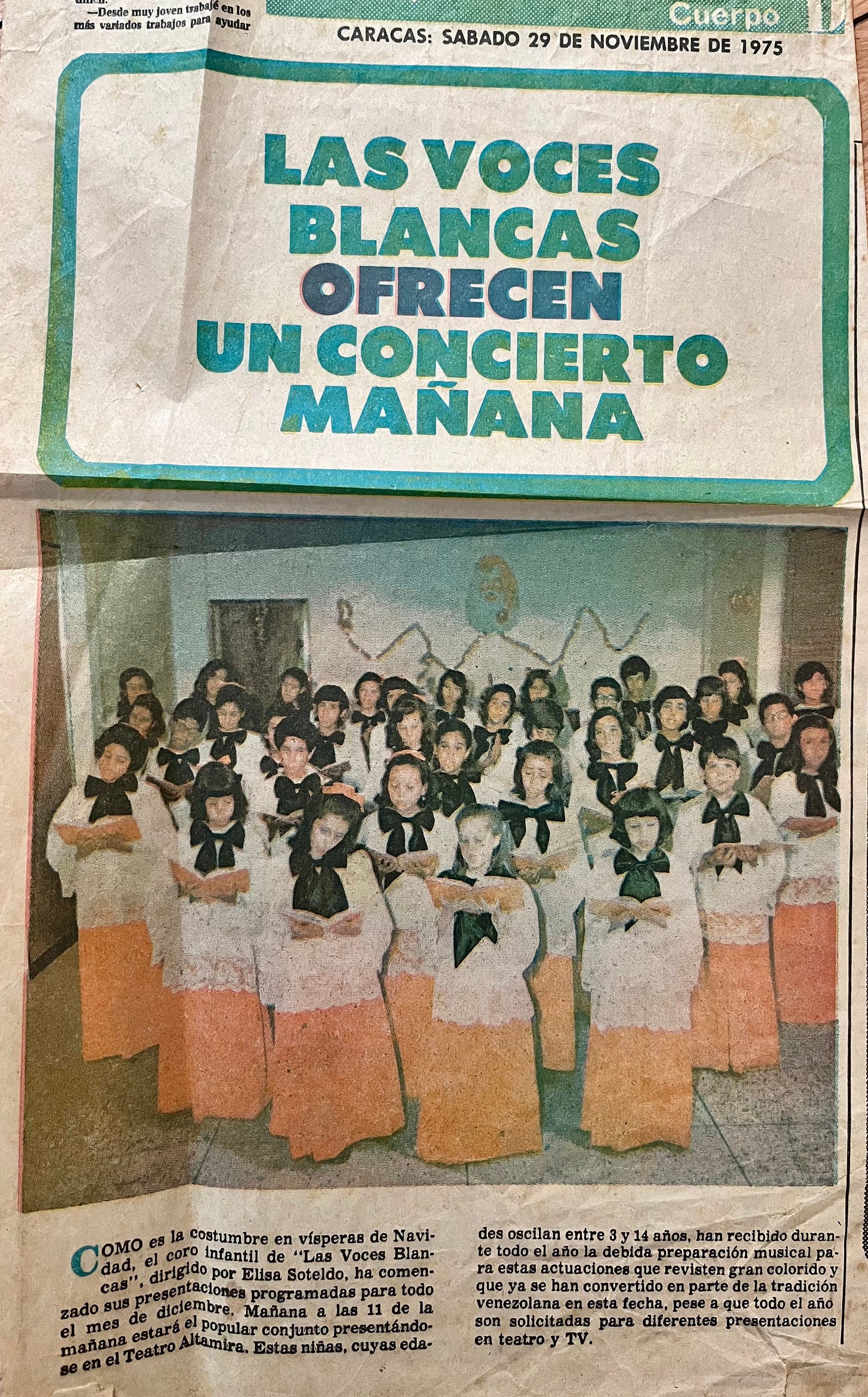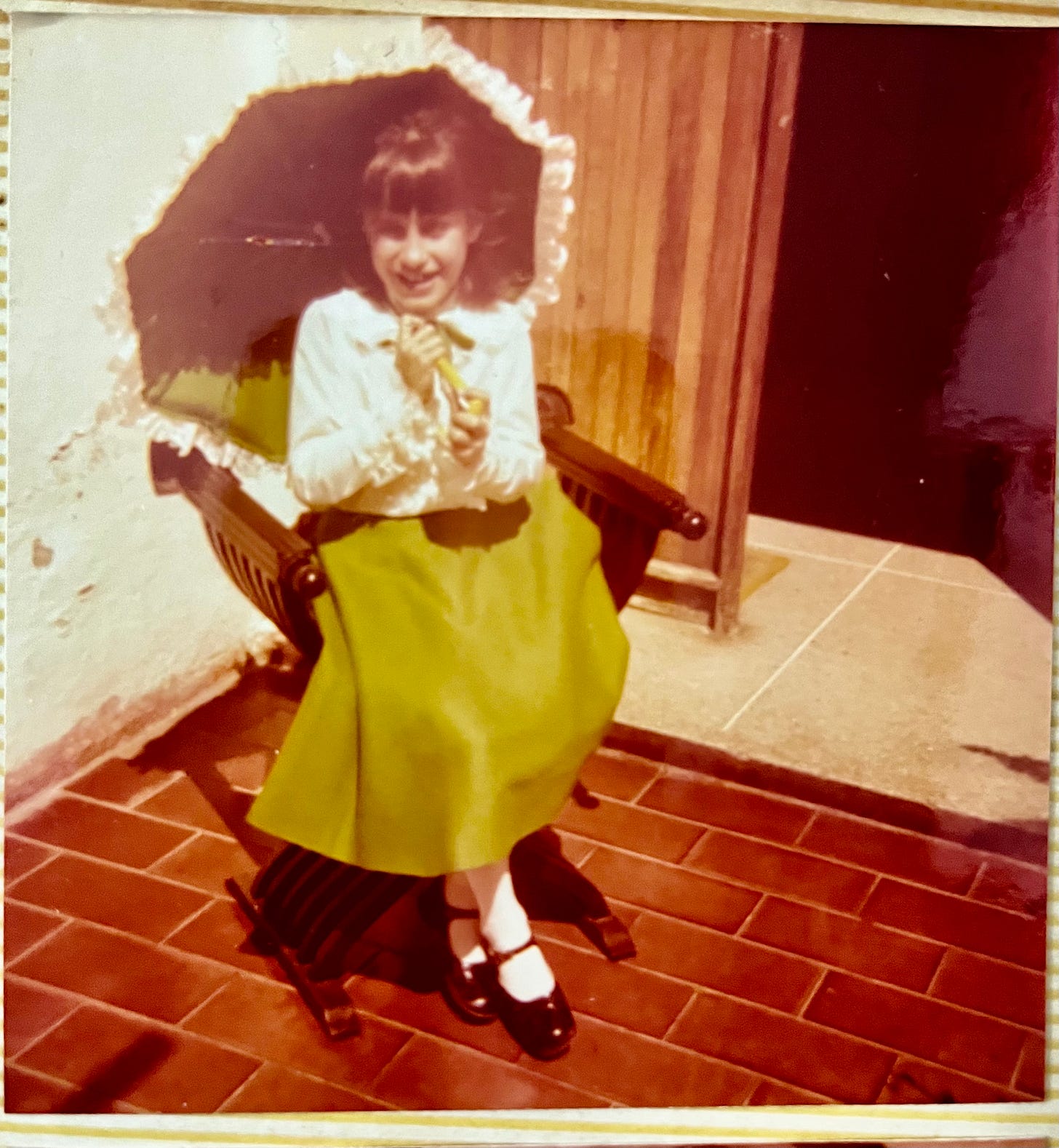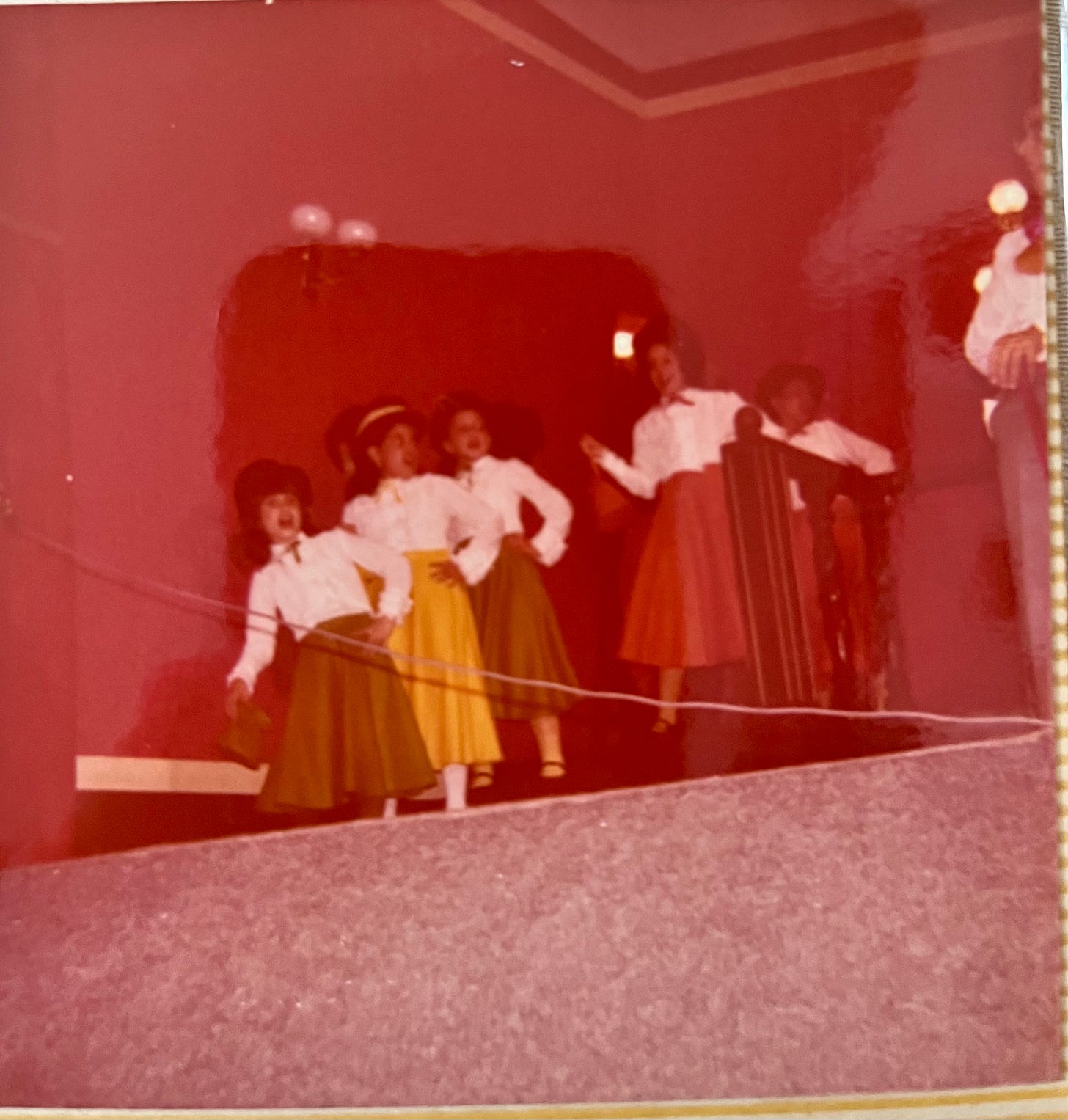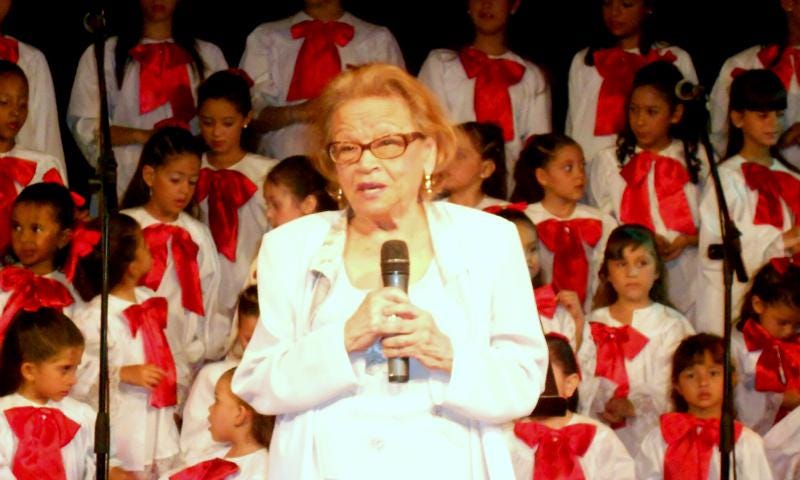Some time ago, in my post about "La Peña Tanguera," I spoke about the bass player for the "Tango Trio," a wonderful human being and excellent musician who is still playing in Barcelona at the young age of 96, Uncle Salvador Soteldo. I mentioned then that the 'uncle' title was a story for another day. Today is that day.
When I was a little girl, I used to watch a show on Venezuelan TV called "Las Voces Blancas," The White Voices. This group was created by a remarkable woman who had been in the music business and had sung with the major orchestras in Venezuela during the '50s and '60s. Her name was Elisa Soteldo. In Venezuela, the name Soteldo has always been synonymous with music. They are a huge family of musicians, all exceptionally talented, and I have always had a wonderful association with them.
"Voces Blancas" was a place where you would learn to sing, dance, act, perform Broadway-style plays, learn music, and understand what artistic discipline was. It was not easy. There I learned that behind the glamour of TV, there are endless hours of makeup, dressing up, waiting, and finally recording. We could be recording a 1-hour episode for 8 or 9 hours, out of which only 1 or 1 ½ hours would be actual recording; the rest was waiting for the set to be prepared, the lights to be set, and the cameras to be adjusted.
I also learned that theatre was the exact opposite. We would start rehearsing months in advance. We would need to learn the music, then the choreography, and finally, we would put it all together.
The dress rehearsal at the theatre was always hectic. Something would always be missing—a dress, a prop, a song would not play correctly, a girl was sick and there had to change, the lights wouldn’t be right, the stage was not prepared—it wouldn’t matter, the show would always go on, and we would always shine!
The day of the opening was always frantic, but being under the lights, everything seemed perfect. Elisa was always wearing the most elegant dresses in black, dark navy blue, or dark green. I remember her pantyhose always had a line on the back of the leg that always caught my attention. Her face was as serious as could be, and her expression always commanded respect.
There were a variety of shows we would do, from Broadway songs like "Hello, Dolly!" to jazz, classical music, Christmas shows in the style of New York City Hall in December, and Venezuelan music all year round. Production was intense and professional. We would have dresses specially made for each number. I remember my Venezuelan attire was a huge, long skirt made from a fabric that would fly with beautiful blue flowers. We would sing music from a very famous Venezuelan composer, Aldemaro Romero, and the choreographies were magnificent. Fanning those skirts with the music always made me feel as if I were a butterfly.
When Elisa was getting ready to start a show and was conducting the choir, she would get quite serious. There was something that always bothered me. Her mouth would go into a frown. It wasn’t a straight line; it was a frown, with the ends of her mouth pointing down. I couldn’t understand why. She was such a happy lady. She was strict and disciplined but always had a smile on her face.

Elisa was also revolutionary for her times. She had four marriages and five children. All her husbands were orchestral conductors and composers, both classical and popular. At one point in her life, she lived in New York while married to the main trumpet player of the Tito Rodriguez Orchestra, Mario Fernandez. After returning to Venezuela in 1967, she started "Voces Blancas," and the group is still alive, led by Liz Fernandez, Elisa’s youngest daughter.
Later in life, I understood the frown by looking at myself in the mirror. One day, that same serious frown showed up in my own face, and I understood: Elisa's frown was a sign of much laughter. It didn’t bother me anymore.
Returning to my opening statement, if you didn’t notice, Salvador Soteldo, the bass player, is Elisa’s brother. That’s why he sports the well-deserved "uncle" title.
"Las Voces Blancas" was the beginning of my life as a musician, and whenever I think about it, memories of happy times come back and erase the frown from my mouth.
Welcome to my suitcase of memories and creativity. I’m Arnaly, a citizen of many places, and I want to share my experiences growing up in Venezuela, as well as my fun experiments in creative writing.
I became a writer the day I realized there was no more space for thoughts in my head and I needed to set them free. I write both fiction and non-fiction: in "La Maleta de Arnaly," I share my personal stories, in the section "Life Wayfaring," I write hybrid stories, allowing my imagination to roam free and blend with reality. I am a fan of Magic Realism and love to use it in my stories. In the section “The Un-Poet”, I express my feelings in the shape of, hopefully, poetry.
Thank you for reading, and I hope you can join me on my journey as I traverse the world through my stories.
If you liked this post, please help me write more by buying me a coffee on the link below:
Thank you! 😊





